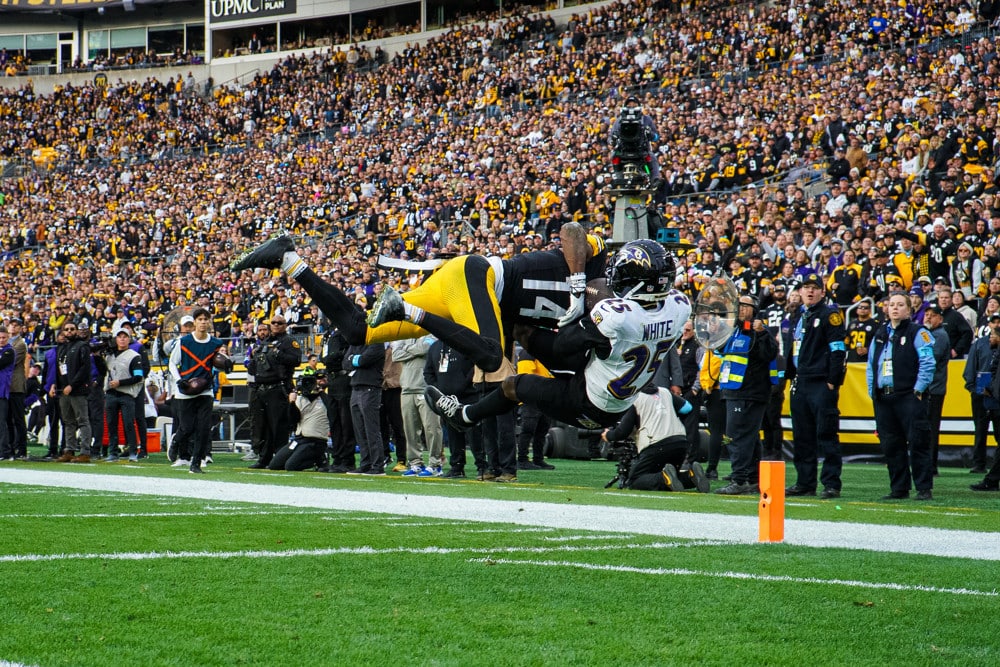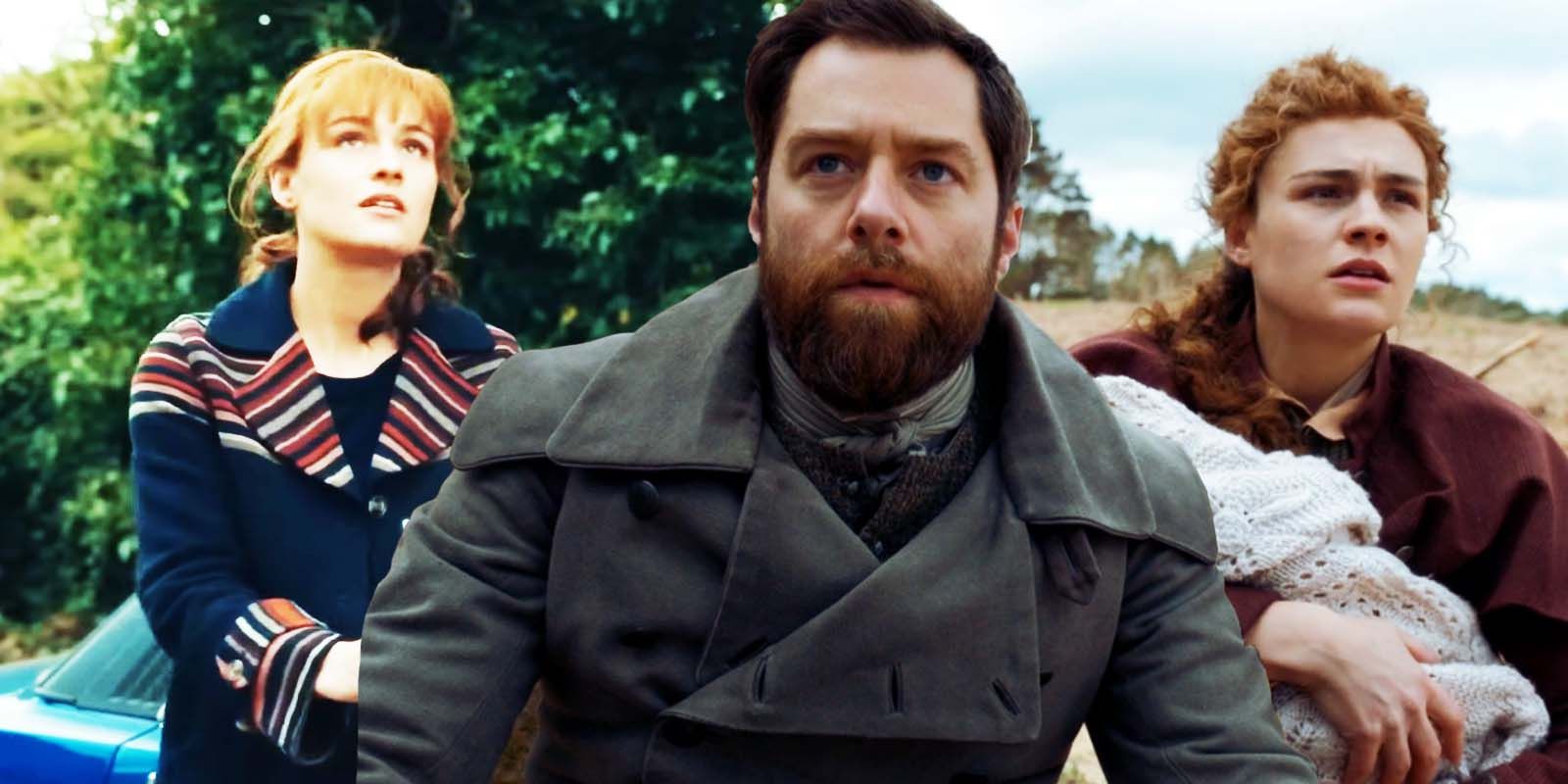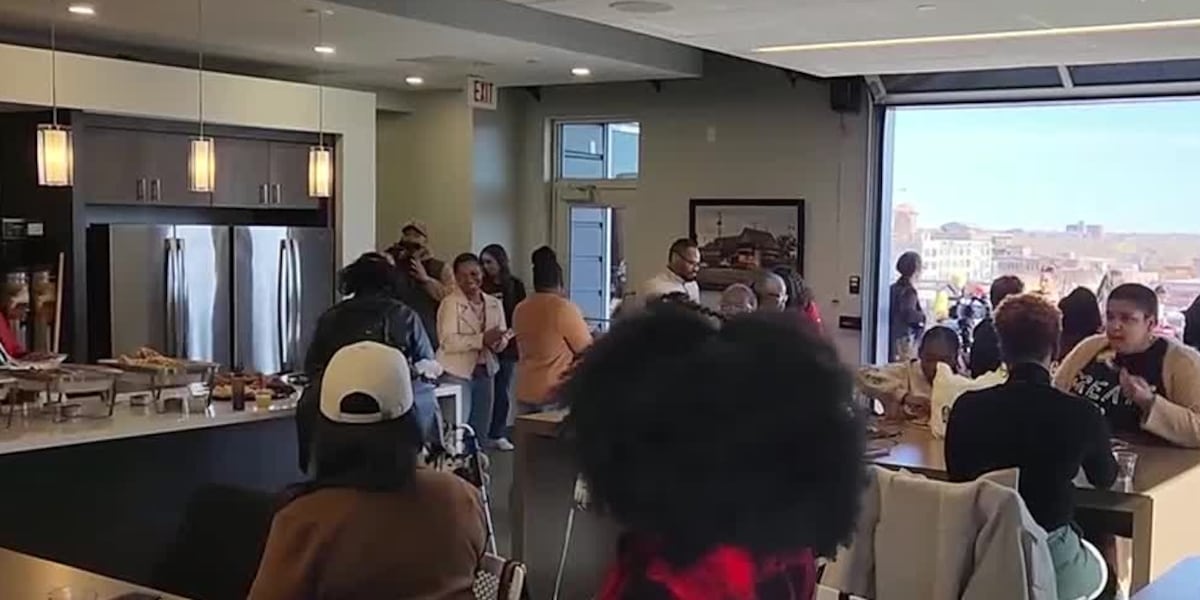Shopping
‘Earthalujah!’: A Rebel Pastor Preaches for the Planet

The preacher stood wild-eyed before his flock, swaying to a gospel choir. His pompadour stood tall, his voice was thunderous, and his all white suit perfectly matched the heeled white loafers he was wearing on his feet.
Behind them hung a 14-foot high photo of Earth, the very reason this preacher, choir and congregants had gathered in a converted storefront in Manhattan’s East Village one Sunday in July.
This was Earthchxrch, also known as Earth Church, the latest iteration in the ever evolving mash-up of performance art, satire, protest and song from Reverend Billy Talen, a self-anointed preacher and ersatz clergyman, and the Stop Shopping Choir.
“We’re all aware at some level in our bodies that the Earth is off the charts,” Mr. Talen intoned to the 70 or so people there. “We are living inside of the time right now that they have been warning us about.”
Mr. Talen went on to sermonize about things not generally heard from pulpits. About mounting warnings from the Intergovernmental Panel on Climate Change, the scientific body created by the United Nations. About record high temperatures, melting ice sheets and skyrocketing concentrations of carbon dioxide in the atmosphere. About torrential downpours intensified by heat that seemed less like rain, and more like midair waterfalls.
Outside, New York City was baking. The temperature was 91 degrees Fahrenheit but felt like 106. A block away, down East Third Street, kids were dancing in the spray of an opened fire hydrant. Inside the storefront space, which used to house a bank, a sclerotic air-conditioning system was losing its battle with the heat. The air felt as hot as breath.
“This proto apocalypse that we’re living through, it’s moving so fast and changing so fast that a lot of what’s happening doesn’t have names,” Mr. Talen continued. “We’re living through it but not talking about it.”
Then, sensing the need for levity, he cried out, “Someone give me an Earthalujah!”
“Earthalujah!” the choir and congregants hollered back.
The service was avowedly secular, and each week loosely follows the same script. The choir sings heartfelt paeans about the Earth, and Reverend Billy delivers sermons blending alarm with playfulness and heartbreak with solace.
“I cry half the time from these songs,” said Sarah Wellington, an artist and Earthchxrch regular.
At the end, people shared updates about local activist efforts and community work.
“It’s a place where people can come together and deal with a sense of guilt of participating in a system that pushes us toward the brink of extinction,” said the director and playwright Tony Torn, who helped Mr. Talen develop the concept of Reverend Billy decades ago.
Savitri D., Mr. Talen’s longtime collaborator and wife, said one of their goals was to urge people to act in line with their values.
“Many of us are living highly compromised lives,” she said. “We forget what it feels like to integrate our deeply held beliefs with action of any kind.”
For the past quarter of a century, Mr. Talen and the Stop Shopping Choir have been a staple in New York’s downtown arts scene, and at protests around the city and beyond. Their chief target was rampant consumerism, and in the 2000s they became the bêtes-noir of retail chains and malls. They called themselves the Church of Stop Shopping, which Mr. Talen has described as “an anti-consumerist communion devoted to putting the odd into God.”
Backed by the choir, Mr. Talen showed up at Black Friday shopping events with a bullhorn, urging crowds to stop buying so much stuff. He staged performative exorcisms at the Disney Store, Walmart, Chase Bank, Staples and Victoria’s Secret, always with comic flourish.
“Oh Victoria, we know your secret,” he’d bellow. “We don’t need a million catalogs a day to have our sexual fantasies.” He usually stayed until the police showed up, and often left in handcuffs. At one point, Starbucks employees in Manhattan were sent an internal memo; “What should I do if Reverend Billy is in my store?” Mr. Talen, delighted, borrowed the title for his first book.
Originally from Minnesota, Mr. Talen helped found an avant-garde theater in San Francisco before moving to New York about 30 years ago. He modeled the Reverend Billy persona after street preachers that held forth along 42nd Street, and televangelists like Jimmy Swaggart. He used his sermons to target corporate retail homogeneity and lament the loss of mom-and-pop shops, and in 2000 won a special citation at the Obie awards. That year, he also met Ms. D., an artist and activist who designs and directs the performances, protests and roadshows, produced their latest album, and composes many of their songs.
“Song is the great healer,” Ms. D said.
The choir is made of a rotating cast of waiters, artists, social workers, scientists, teachers and Broadway performers, including Amber Gray, a Tony-nominated actress who originated the role of Persephone in Hadestown.
“It’s really a tribe I have in New York City. They’re all my emergency contacts,” said Ms. Gray, who has sung with the choir since 2005 and met her partner there. “It keeps me sane and literally grounded. ”
After Hurricane Katrina, the choir began focusing on environmental threats. They sang to tree-sitters trying to stop the felling of ancient redwoods in California, barged into a herbicide plant in Louisiana’s Cancer Alley and joined protesters of mountaintop removal mining in Appalachia.
Along the way, they drew high profile admirers, and anointed a slew of patron saints. Among them: the Amazon labor unionist Chris Smalls, the activist Bertha Lewis, Joan Baez and the writers Malachy McCourt, David Graeber and Kurt Vonnegut, who once wrote Mr. Talen a check for $100, adding, in the memo line, “God’s Work.” Morgan Spurlock produced a 2007 documentary about them called “What Would Jesus Buy?”
This year, Reverend Billy and the Stop Shopping Chorus opened for Neil Young & Crazy Horse’s Love Earth tour. “He has a lot of good things to say and good love to spread, in an entertaining way that is so important today,” Mr. Young wrote in an email.
The idea for Earthchxrch was born in the pandemic. In 2021, Mr. Talen and Ms. D launched a podcast called “Earth Riot Radio,” and the next year found an empty space on Avenue C.
On weekdays, they open the doors to West African migrants, who use the space for English classes led by community volunteers. There’s also a free store, where people in need can pick up clothes and household goods. The whole enterprise is paid for by donations, though Mr. Talen doesn’t pass around a collection basket at Earthchxrch. It would feel awkward, he said, to urge people to stop shopping and then ask them for money.
“When you open a space and it’s not transactional, you actually start building community and culture around relationships and values,” Ms. D said.
On that hot Sunday in July, the folding chairs filled with Earthchxrch attendees and people began leaning against walls or sitting on the floor. Their aesthetic suggested thrift store visits: vintage dresses, sleeveless T-shirts, shorts and combat boots. Almost no one was looking at a phone.
Members of the choir filed in from a back room, wearing outfits as bright as Skittles, and, accompanied by a piano player, began singing.
“What did you do to the great outdoors, and to our children’s children,” they sang. “Why and what for?
Over the course of the next hour, something shifted in the room. Afterward, people met each other with smiles, laughter and hugs, and out on the sidewalk some members of the choir sang an attendee an impromptu happy birthday song.
“Music is part of all revolutions,” said Francisca Benítez, a New York City-based Chilean artist who joined the choir in 2017, and sang with them that day. “We are rehearsing the world we want to live in.”



:quality(70):focal(958x822:968x832)/cloudfront-us-east-1.images.arcpublishing.com/shawmedia/JAEFIIKPTVFAPKJ55WWVVO7HAY.jpg)




